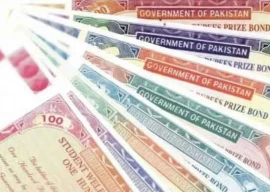
The Ministry of Finance has expressed its inability to subsidise the local agricultural sector to make it competitive with the list of agricultural items that could be imported from India, which farmers’ lobby say may destroy the Pakistani agricultural industry after implementation of the Most Favoured Nation (MFN) status.
The government plans to grant MFN status to India by the end of December, and, according to the plan, land routes will be opened for trade with India by January next year.
Sources said that the Ministry of commerce, backed by stakeholders, had approached the finance ministry for allocation of subsidy for agriculture sector in the new trade policy so that Pakistani agriculture produce becomes competitive with Indian imports.
“However, the finance ministry has insufficient funds due to huge subsidy being paid to the inefficient power sector, and therefore is reluctant to go ahead on proposed financing plan for the agriculture sector,” sources said, adding that since agriculture goods were exclusive of the negative list, import duties will be levied on them.
“Presently, gas feed stocks to fertiliser factories are subsidised, amounting to Rs11 billion a year. However, surging oil prices and power outages have increased the cost of production, thus Pakistan’s agriculture sector is not equipped well enough to able to compete with Indian agricultural imports,” an official of the Ministry of Food Security and Research said.
Growers fear they will lose in the import deal with India. Farmers demand that major crops should be added to the sensitive list; barring Indian goods to shield the local sector. Earlier, farmers alleged that the government had not taken them on board during decision-making on the list of bilateral trade with India.
Officials admitted that import of sugar, pulses and red chillies will affect the domestic market.
“Indian farmers are enjoying huge subsidies and therefore, the government should subsidise the local farming sector to bring at par with the Indian farmers,” one grower said.
Other stakeholders raised concern that granting the MFN status to India was done without proper cost-benefit analysis of its impact on Pakistan’s economy.
The official said that the government was regulating wheat and sugar imports, therefore they will remain unaffected.
“If trade doors are opened without taking effective measures, and without negotiating reciprocal treatment and negotiating market access for Pakistan agricultural goods to India, local farmers will be left at the mercy of Indian growers,” a farmer said.
Published in The Express Tribune, November 21st, 2012.
COMMENTS (9)
Comments are moderated and generally will be posted if they are on-topic and not abusive.
For more information, please see our Comments FAQ

1732530816-0/BeFunky-collage-(88)1732530816-0-165x106.webp)
1720848500-0/Eminem-and-his-daugher-Hallie-(1)1720848500-0-165x106.webp)




1732486769-0/image-(8)1732486769-0-270x192.webp)









Plant orchards ..export citrus to the world ...Finally will get to eat Nagpur ka Santara
economics 101: more trade=betterment for all parties involved. its a positive some game. i say go for it. import electricity, steel, oil, cement. export cotton, sports goods, wheet. the potential here is huge! its a pity that the IPI pipeline couldnt go through
Looking at the number of Indian here it seems that Indian government also gives subsidy to commentators on Pakistani news sites.
Indian Govt can subsidise this sector because its not spending more than 60% of its Budget on Military and Loan Payments.
Its spending on Development. If Pakistan can manufacture nukes and missiles and other killing machines surely it should not complain. After all Pakistan is an equal of India, right?
when have Pakistan ever followed rules.. "India granted MFN status to Pakistan in 1996 – so reciprocal access is already available. IT is Pakistan who took its own sweet time in reciprocating."
and when in 60's to 90's India was strengthing it's manufaturing, agriculture, infrastructure..Pakistan was having fun, with arab petro dollars and making mosques, etc. and then also sided with the Americans and got all the milatary hardware...and rest of the stuff was imported like the rest of the muslim countries...
and now thier farmers and small indurtalists are wining about competetion from the Indians..
Its era of free market economy. Either you compete or you perish. India is an easy scapegoat for all our inefficiencies, problems and utter incapability. Whenever you find a pakistani on backfoot, there is no dearth of india specific conspiracy that pops up. The same pakistani is beaten, his jobs taken, his families starved and his assets forcibly taken over by local Govt, or better shrewd chinese businessmen who have flooded our markets with junk products, but we will never hear a word.
" Officials admitted that import of sugar, pulses and red chillies will affect the domestic market. Indian farmers are enjoying huge subsidies and therefore, the government should subsidise the local farming sector to bring at par with the Indian farmers,” one grower said"
I have my reservations that India shall be able to export Pulses to any country including Pakistan. India's pulses production,(though India is the largest producer as well as consumer of pulses in the world ) is inconsistent with population growth. India imports approx. 3.5 million ton of pulses every year from Myanmar, Canada, Australia and china and the trend is showing increase. sugar production is just sufficient to to take care of the demand and India needs to maintain a carry over buffer stock to maintain the prices . quite often it has imported from Brazil and Pakistan also... There is no subsidy on pulses and sugar.in India except that fertilizer in general is subsidized.. Ever increasing prices of pulses and sugar in the domestic market will exert pressure on the government to forbid its export . Red Chilies is one item winch India can export, being the largest producer in the world and on an average sexpots 2.1 to 2.50 million ton of red chilies every year.
India will be keen to export its non food items like engineering products, chemicals even cement and medicine and medical equipment and and look for cotton textile items for import.
"“If trade doors are opened without taking effective measures, and without negotiating reciprocal treatment and negotiating market access for Pakistan agricultural goods to India"
Ummm India granted MFN status to Pakistan in 1996 - so reciprocal access is already available. IT is Pakistan who took its own sweet time in reciprocating.